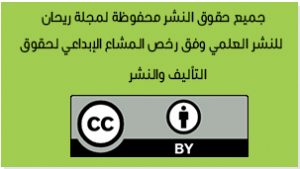مدح القادة السياسيين عند الشعراء التشاديين المعاصرين: دراسة في الألفاظ والمعاني (مدح القذافي أنموذجا)
This study presented poems by Chadian poets in praise of political leaders. To explain the meanings and images it contains; she took the poems praising Gaddafi as a model, and conducted an artistic study in them, focusing on the study of words and the direct meanings and suggestive connotations they contained. She also addressed the artistic honesty, emotion, and personal imagination in them, and the artistic images expressing a social reality and popular political thought in Gaddafi’s days.
The study followed an approach that combined induction, description, and analysis. It reviewed the poems, examined them, and explained their suitability, meaning, and rhyme, while highlighting the literary beauty or failure in them. The study also presented the critics’ opinions on them wherever necessary.
Among the results of this study: The poetry spoken by Chadians in praise of Gaddafi is evidence of the people’s support for him, and that the oppressed peoples always yearn for freedom and justice and submit to the powerful advocates of freedom whenever they call. Chadian poets expressed their people’s support for Gaddafi in raising the slogan of liberation, and by looking at the biographies of poets, it becomes clear that those who studied in Libya; They are more praising Gaddafi, sometimes with excessive exaggeration. Issa Abdullah is considered the poet who praised Gaddafi most influenced by him and enthusiastic about his project. But it seems clear that the praise of Gaddafi was exaggerated, and perhaps sometimes out of desire.
Keywords: Chadian poetry, praise of leaders, politicians and poets, contemporary poets, Muammar Gaddafi.
Dr. Alhabo Tidjani MOUSTAPHA, Member of the teaching staff at the Faculty of Languages, Media and Arts, Department of Arabic Language and Literature, King Faisal University in CHAD
Dr. Amine Ali DAHAB, Member of the teaching staff at the Faculty of Languages, Literature Media and Arts, Department of Arabic Language and Literature, N’Djamena University – TCHAD
 مجلة ريحان للنشر العلمي مجلة علمية، محكمة، شهرية، مفتوحة الوصول
مجلة ريحان للنشر العلمي مجلة علمية، محكمة، شهرية، مفتوحة الوصول
